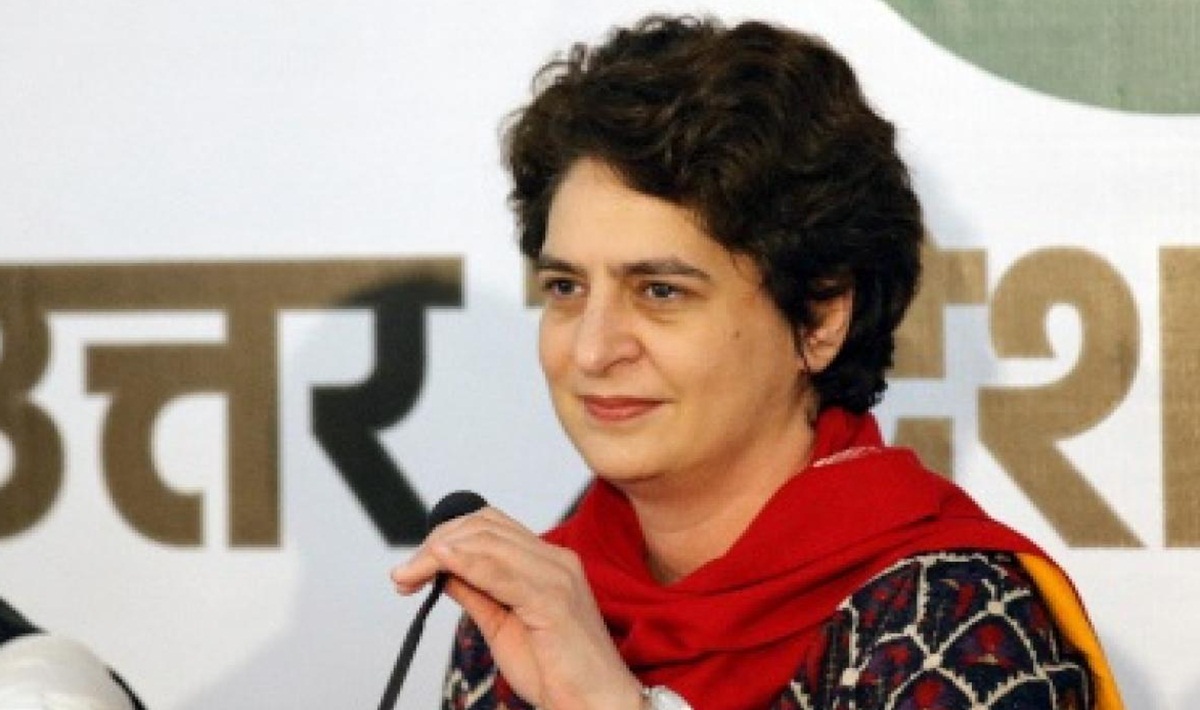New Delhi: Union Home Minister Amit Shah launched a blistering attack on opposition MPs in the Lok Sabha during a heated discussion on the Waqf Bill, now renamed as the Unified Waqf Management Empowerment, Efficiency, and Development (UMEED) Bill. Responding to concerns raised by opposition members, Shah asserted that the legislation was a law of the Indian government and would be binding on all citizens.
“A member here said that minorities will not accept this law. What is this—an attempt to threaten? This is a law passed by Parliament, and everyone must accept it. What does it even mean to say that you won’t accept the law? How can anyone claim that they will not abide by it? This is a law of the Government of India, and it will be binding on everyone. It must be accepted,” Shah said, making it clear that there was no room for defiance against a legally passed legislation.
Shah’s Dig at Rahul Gandhi’s Constitution References
Taking an indirect swipe at Congress leader Rahul Gandhi and his frequent references to the Constitution, Shah remarked, “Waving the Constitution has suddenly become a trend. But according to this very Constitution, how can any decision—whether by the government or a private institution—be beyond the judgment of the honourable court? The courts of this country cannot be denied access to such decisions. Where will citizens take their grievances? Where will those whose land has been taken away go? This will not be allowed. You did this for vote-bank politics, and we reject it. This cannot continue. If anyone has grievances, they should go to the court, and the court will deliver justice.”
Clarification on Waqf Council and Board
Addressing concerns raised by opposition MPs regarding the alleged interference in religious matters, Shah clarified that the Waqf Council and Waqf Board, established in 1995, were meant solely for ensuring the proper administration of Waqf properties and not for any religious interference.
“That Waqf bill is interference in Muslims’ religious matters and properties donated by them is fear-mongering for vote-bank… Non-Muslims in Waqf council, boards; these bodies purely for ensuring the administration of properties in accordance with stated aims… Waqf council, boards will be aimed at catching those exploiting Waqf properties,” he stated.
Shah further alleged that the Waqf law was made “extreme” in 2013 by the then Congress-led government for appeasement politics, asserting that if not for the amendments made back then, this bill might not have been necessary.
Congress Handed Over VVIP Properties for Vote-Bank Politics: Shah
Highlighting the alleged misuse of the Waqf Act by the Congress government in 2013, Shah accused the party of handing over 123 VVIP properties in Lutyens’ Delhi to the Waqf Board just 25 days before the 2014 general elections.
“Everything was going well. But there were elections in 2014, and overnight in 2013, the Waqf Act was turned extreme for appeasement. As a result, the Congress government handed over 123 VVIP properties in Lutyens’ Delhi to Waqf when elections were just around the corner, just 25 days away,” he said.
Shah to Muslims: No Non-Muslim Will Interfere in Waqf Affairs
Amid the opposition’s concerns, Shah reassured the Muslim community that non-Muslims would have no role in running Waqf affairs. However, he emphasized that the Waqf Board and Council would be responsible for preventing the illegal sale and mismanagement of Waqf properties.
“You (Opposition) would break this country… Through this House, I would like to tell Muslims of the country that not even one non-Muslim would come into your Waqf. This Act has no such provision. But what would the Waqf Board and Waqf Council do? To catch the people selling off Waqf properties and drive them out, to catch those who lease off their properties for 100 years in the name of Waqf. The income of Waqf is dropping, the income with which we have to do development for minorities and push them forward, that money is being stolen. Waqf Board and Council will catch that,” he asserted.
Shah’s fiery speech comes amid intense opposition criticism of the UMEED Bill, with parties accusing the government of infringing upon minority rights. However, the Home Minister stood firm, arguing that the bill aims to ensure transparency and efficiency in the management of Waqf properties while preventing their exploitation.
With the Lok Sabha session witnessing sharp exchanges, the fate of the UMEED Bill remains a contentious issue in national politics. While the government maintains that the bill will bring better governance to Waqf properties, the opposition sees it as another move targeting minorities. The debate is expected to continue as the bill moves forward in Parliament.







where buy clomiphene tablets cost of clomiphene price buy cheap clomiphene price clomid rx cost clomiphene without insurance clomid remedio buy generic clomid tablets
This is the kind of serenity I take advantage of reading.
More articles like this would make the blogosphere richer.
zithromax 250mg without prescription – order floxin 200mg pill metronidazole 200mg canada
semaglutide 14mg brand – order rybelsus without prescription how to get cyproheptadine without a prescription
motilium online order – buy tetracycline cheap cheap cyclobenzaprine 15mg
brand inderal 20mg – plavix without prescription oral methotrexate 10mg
purchase amoxil sale – buy cheap ipratropium order generic ipratropium 100mcg
buy augmentin 1000mg – atbioinfo buy acillin pills for sale
brand esomeprazole 20mg – nexiumtous order esomeprazole 40mg sale
buy warfarin 2mg – cou mamide cozaar 25mg usa
buy erectile dysfunction drugs over the counter – top ed pills buy ed meds online
buy amoxicillin without a prescription – https://combamoxi.com/ purchase amoxicillin for sale
purchase diflucan without prescription – https://gpdifluca.com/# forcan order
purchase cenforce pill – https://cenforcers.com/ cenforce without prescription
generic tadalafil in us – https://ciltadgn.com/ where to get generic cialis without prescription
cost ranitidine 150mg – https://aranitidine.com/# ranitidine pills
prescription for cialis – site overnight cialis
This is a keynote which is near to my fundamentals… Diverse thanks! Unerringly where can I find the connection details in the course of questions? prednisolone para que sirve
best price on viagra 100mg – sildenafil citrate ip 100 mg can you buy viagra in thailand
Greetings! Extremely serviceable recommendation within this article! It’s the little changes which choice turn the largest changes. Thanks a portion towards sharing! https://ursxdol.com/azithromycin-pill-online/
Thanks towards putting this up. It’s evidently done. https://prohnrg.com/product/loratadine-10-mg-tablets/
Thanks for sharing. It’s outstrip quality. https://aranitidine.com/fr/cialis-super-active/
With thanks. Loads of expertise! https://ondactone.com/simvastatin/
Thanks towards putting this up. It’s well done.
https://doxycyclinege.com/pro/metoclopramide/
Thanks recompense sharing. It’s outstrip quality. http://4chan.nbbs.biz/kusyon_b.php?https://hackmd.io/@adip/S1nI1FQ_xe
More posts like this would make the online space more useful. http://www.gtcm.info/home.php?mod=space&uid=1157024
purchase dapagliflozin without prescription – https://janozin.com/ order forxiga generic
purchase orlistat pill – https://asacostat.com/# oral orlistat 120mg
With thanks. Loads of conception! http://www.haxorware.com/forums/member.php?action=profile&uid=396458
You can shelter yourself and your dearest by being alert when buying medicine online. Some druggist’s websites operate legally and offer convenience, solitariness, rate savings and safeguards over the extent of purchasing medicines. buy in TerbinaPharmacy https://terbinafines.com/product/keppra.html keppra
More posts like this would persuade the online time more useful. TerbinaPharmacy
More delight pieces like this would make the web better.
Tham gia cộng đồng game thủ tại Go88 để trải nghiệm các trò chơi bài, poker phổ biến nhất hiện nay.
Đến với J88, bạn sẽ được trải nghiệm dịch vụ cá cược chuyên nghiệp cùng hàng ngàn sự kiện khuyến mãi độc quyền.
Đến với J88, bạn sẽ được trải nghiệm dịch vụ cá cược chuyên nghiệp cùng hàng ngàn sự kiện khuyến mãi độc quyền.
搭载智能站群程序,自动化搭建与管理,为SEO项目提供核心驱动力。站群程序
iwin – nền tảng game bài đổi thưởng uy tín, nơi bạn có thể thử vận may và tận hưởng nhiều tựa game hấp